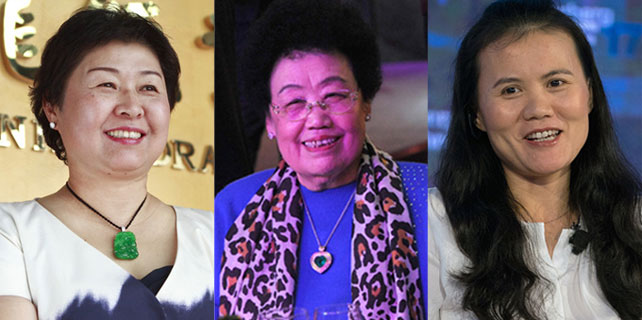Open, innovative China charts course for global growth
GUANGZHOU — China's achievements in promoting an open and innovative economy and common development offer a good example for case study as global business leaders gather here to float creative ideas for guiding the world through a dramatic transformation.
It is the fifth time the famed Fortune Global Forum has taken place in China, whose record of sustained development, commitment to win-win cooperation and contribution to global growth have kept wowing the world.
Profound changes, global challenges
Themed "Openness and Innovation: Shaping the Global Economy," the 2017 Fortune Global Forum is set to open in the southern Chinese metropolis of Guangzhou on Wednesday.
The forum comes at a time when technology is reshaping the business world in ways never seen before, and rising nationalism and growing distrust in businesses and other institutions are posing a threat to globalization, said Alan Murray, editor-in-chief of the Fortune magazine.
Against this backdrop, more than 700 delegates, including senior executives from over 120 of the world's top companies, are expected to attend the three-day event for discussions on innovation, the future of globalization, 21st-century leadership and sustainable development, among other subjects.
The platform, said Cai Chaolin, director of the Guangzhou forum's executive committee, will enable participants to have a positive impact on global economic and social development and create opportunities for enterprises.
Meanwhile, Guangzhou has been described as an ideal location for the event, as it has long been a center of global trade and investment and has now also become a hub of innovation.
Currently, there are 120,000 sci-tech and innovative companies in Guangzhou, and 13 of China's top innovative companies are based here, according to the US business magazine Fast Company.
"By creating a favorable business and innovative environment and laying out a number of key industries, Guangzhou has improved its ability to attract high-end elements, thus enhancing the city's influence and international popularity," Ni Pengfei, director of the City and Competitiveness Research Center of the Chinese Academy of Social Sciences, told Xinhua in a recent interview.
In recognition of its innovative spirit, Guangzhou has been chosen as the permanent venue of the Fortune Brainstorm Tech International, a new event that focuses on technology and innovation and will take place annually.
Open China, common development
The forum comes as China is pushing forward comprehensive development in line with the blueprint drawn at the landmark 19th National Congress of the Communist Party of China (CPC) in October.
Taking stock of China's remarkable development over the past few decades, the new blueprint features, among others, the unremitting commitment of the world's second-largest economy to openness, win-win cooperation and common development.
The commitment stems from China's increasingly close intertwinement with the rest of the world, and also from Chinese President Xi Jinping's grand vision of building a community with shared future for mankind.
A telling example is the Belt and Road Initiative, which was put forward by Xi in 2013 and is aimed at building a trade, investment and infrastructure network connecting Asia with Europe and Africa along and beyond the ancient Silk Road trade routes.
Official statistics show that so far Chinese businesses have helped build 75 economic and trade cooperation zones in 24 countries along the Belt and Road, generating over 209,000 jobs.
Meanwhile, the world's largest developing and most populous country is expected to import $24 trillion' worth of goods, attract $2 trillion of inbound direct investment, and make $2 trillion of outbound investment in the next 15 years.
"China's door to the world will never close, but will only open wider," Xi said in a congratulatory letter to the Fourth World Internet Conference, which opened Sunday in the town of Wuzhen in eastern China.
Innovative China, sustained development
China, which is restructuring its economy and developing new growth drivers, is paying increasing attention to innovation, which has been listed as the first of its five major development concepts.
For example, since the inception of the Internet Plus initiative in 2015, new industries and business models have boomed in China, with Internet-related technologies revolutionizing such sectors as manufacturing, retail, finance and health care.
Home to about 750 million netizens and boasting the world's second-largest digital economy, China is now in an advantageous position to develop e-commerce and third-party mobile payments.
Internet-related growth accounts for 6.9 percent of China's gross domestic growth, the second-highest proportion in the world, according to AliResearch, a research institute of Chinese e-commerce giant Alibaba.
Many scholars agree that China is actually more digitized than most people have realized, and has the potential to lead in the digital frontier in the coming decades.
Addressing the Asia-Pacific Economic Cooperation CEO Summit in Vietnam last month, Xi said that as China works hard to pursue innovation and higher quality of growth, new forms of business will keep emerging, more innovations will be used, and the development of China's different regions will become more balanced.
"All this will create a more powerful and extensive impact, present more opportunities of cooperation and enable more countries to board the express train of China's development," Xi said.









